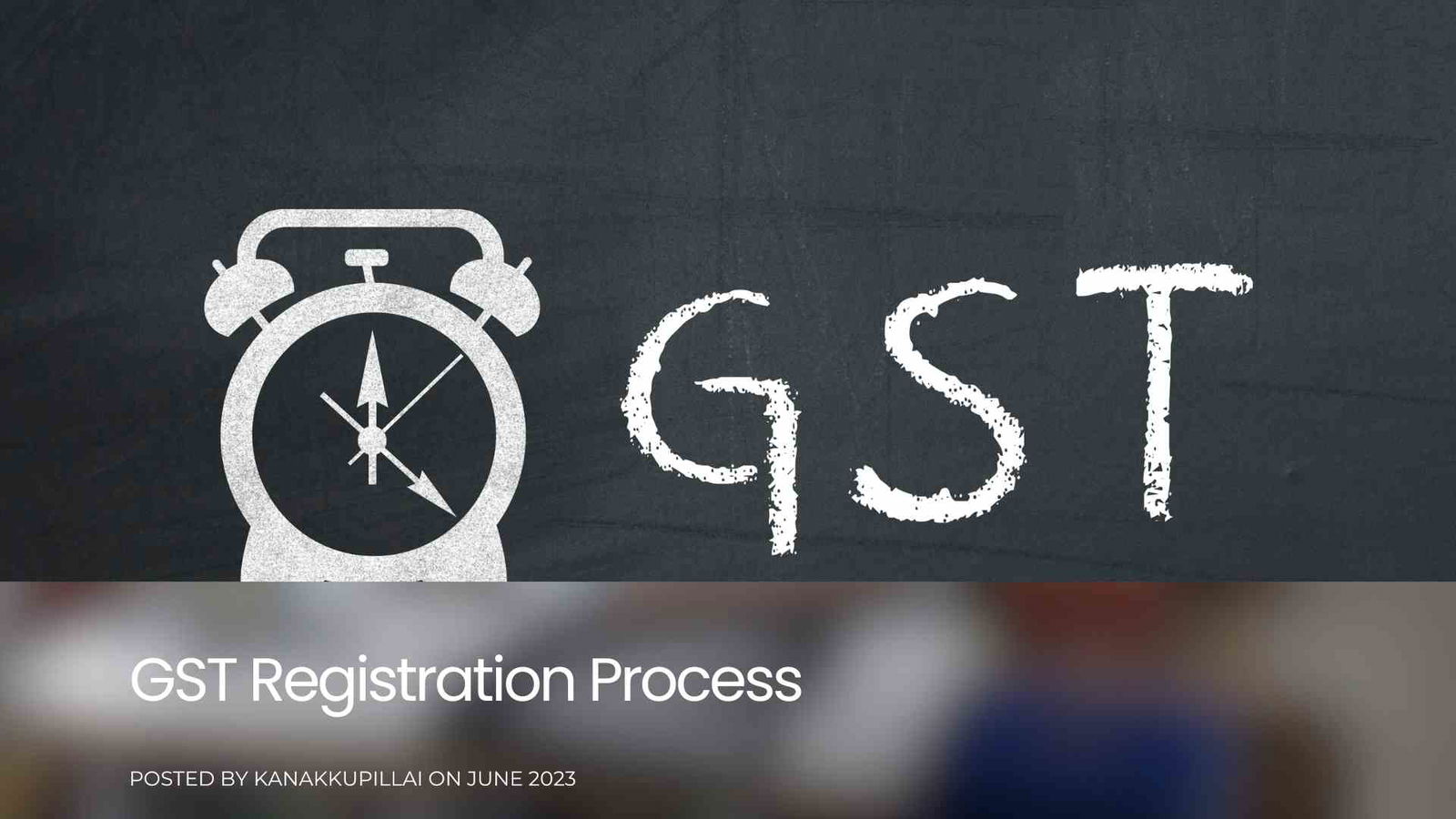REGISTRATION PROCESS OF GOODS AND SERVICE TAX
The introduction of Goods and Services Tax (GST) in India is considered a significant milestone in the country’s tax system. GST aims to replace multiple indirect taxes with a more effective tax regime. This article provides a clear insight into the GST registration process, which is essential for businesses operating in India.
Eligibility Criteria
To be eligible for GST registration, businesses must meet certain criteria. The primary criterion is the company’s annual turnover, which determines the threshold for GST registration. The threshold limit, however, may vary based on the nature of the business and its location. It is essential for businesses to adhere to the guidelines specified by the government during the registration process. These guidelines help businesses determine whether they meet the eligibility criteria for GST registration.
Process of Registration
The registration process for GST involves applying to the online GST portal. The application form, known as GST REG 01, should be filled out and submitted through the portal. Online registration allows businesses to provide the necessary details and complete the application conveniently. It is important to ensure that all information provided in the application is accurate.
Requirement of Documents
Along with the application, certain important documents need to be submitted for GST registration. These documents include the Permanent Account Number (PAN), which serves as a unique identification number for taxpayers. Additionally, identity proof of the owner/member and address proof of the business location are required to establish the authenticity and validity of the registration application.
Submission of Documents
Before submitting the application and documents on the portal, it is crucial to ensure that all necessary details are provided and the application is filled out correctly. The completeness and accuracy of the application play a vital role in successfully processing the registration request. Careful attention should be given to ensure that all supporting documents are attached, and any relevant fields are properly filled.
Verification of Place
Upon submission, the GST reviewer will review the application. Sometimes, the reviewer may visit the proprietor’s place of business to verify the details provided in the application and supporting documents. This step helps ensure that the information submitted by the business aligns with the actual physical location and operations.
Issuance of GST Registration Certificate
Once the submitted application is approved, a GST registration certificate in GST REG 06 is issued. This certificate includes a unique Goods and Services Tax identification number that serves as proof of registration. The registration certificate and the associated identification number establish the business as a registered taxpayer under the GST regime.
Duration of the Registration Process
The registration process usually takes approximately seven to ten days. However, the exact duration may vary depending on various factors, such as the registration authorities’ workload and the application’s completeness. Businesses should plan accordingly and be prepared for this duration.
Amendments and Updates Post Registration
Registered owners must maintain important registration details and promptly update any changes. It is crucial to inform the GST authorities about any changes in the business, such as a change in the place of business, business name, or nature of the company. Compliance with these requirements ensures that the registration information remains accurate and up to date.
Conclusion
The GST registration process is a crucial step for businesses operating in India. The process varies depending on the nature of the business, such as being a composite taxpayer, resident person, or single taxpayer. It is essential to identify the business’s nature and follow the guidelines provided by the GST Act to ensure successful registration under GST. By fulfilling the registration requirements and obtaining the GST registration certificate, businesses can comply with the GST regulations and contribute to the streamlined tax system in India.
Case Laws
In the case of Sanjay vs. the State of Gujarat, the court held that the petitioner, who had applied for GST registration, approached the court seeking a directive to grant final GST registration. The court acknowledged the petitioner’s plight and ordered that the application be processed promptly, with the final GST registration to be issued within one week. This case highlights the importance of timely processing of registration applications and emphasizes the need for efficient administration to facilitate businesses in obtaining their GST registration.
Related Services
FAQ
What is GST registration?
GST registration is a process through which businesses in India register under the Goods and Services Tax (GST) regime. It is mandatory for businesses with a certain annual turnover to obtain GST registration.
Who needs to register for GST?
Any business with an annual turnover exceeding the threshold limit set by the government must register for GST. However, the threshold limit may vary depending on the type of business and its location.
How can I apply for GST registration?
To apply for GST registration, you need to file an online application on the GST portal. The application form is known as GST REG 01.
What documents are required for GST registration?
The essential documents required for GST registration include PAN (Permanent Account Number), identity proof of the owner/member, and address proof of the place of business.
How long does the GST registration process take?
The registration process typically takes around seven to ten days, depending on various factors. It is advisable to plan accordingly and ensure all necessary details are provided.
What happens after GST registration is approved?
Once your GST registration is approved, you will receive a GST registration certificate as GST REG 06. This certificate contains a unique Goods and Services Tax identification number identifying you as a registered taxpayer.





